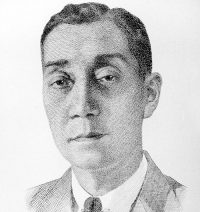The newspapers say Singapore has been subjected to heavy bombing. KGEI announced that British forces have retreated to Palch, 100 kilometers northwest of Singapore. Looks bad.
My suggestion to allow each individual to have five sacks of rice for personal use has been granted by the Army, in view of the many complaints received at headquarters, according to Supervisor Noya.
The Japanese have hinted that NARIC might handle flour distribution. That means more work.
Must send Occeña to Santo Tomas camp to find out the amount of food supply the Americans need.
Heard through Mr. Baer that Dr. Youngberg is very ill. He is in St. Luke’s hospital. Must visit the old Doc.
Scarcity of sacks. Must think up some other kind of container.
I asked Mr. Terada, Assistant Supervisor, to make things clear. I want to know my responsibilities and if I have any, then I must have the authority. I told him I want a written report whenever orders are given directly to my men.
Luis de Leon arrived after a trip from Bulacan and Nueva Ecija. He says Nueva Ecija is in turmoil. Some people have fled. Women are unprotected. In Sibul, he stated, lots of firearms were left by the cadres. This has encouraged looting.
Leandro Castillo went as far as Jaen, Nueva Ecija. He reported that the tenants are asking when threshing will commence. “They need kerosene,” he said. The tenants also want to know where to deposit their rice.
Present organization of the NARIC. This is the theoretical arrangement: actually, the Japanese are managers and we Filipinos are advisers. And which is worse: we have responsibility without authority.
The inability to understand each other’s language is a great deterrent to the smooth execution of daily business. Relations between the Japanese employees and minor Filipino officials are like those of master to servant. Mr. Inada of distribution is very arrogant, bullheaded, tyrannical, although quite efficient. Personnel relations in the office are tense, strained. Nerves are on edge. The Japanese want the Filipinos to understand their ways. The Filipinos expect the Japanese to comprehend them. At least, there should be a fifty-fifty meeting. The Japanese cannot forget that they are the victors, the conquerors. The Filipinos take their words literally, that they have come as liberators, and not as oppressors.
Some Filipino employees have been slapped. This cannot go on. I must talk to Mr. Noya. To the Japanese, slapping is customary when a superior reprimands a subordinate. Among Filipinos, slapping is a mark of dishonor. In ancient times, slapping was a cause for duels. I must tell Mr. Noya that it is for the good of the Japanese themselves that they stop raising their hands.
The Filipino is patient. He can suffer a lot of abuse. But there is a limit. Those who do not believe, may ask the Spaniards.
In the district of Tondo, Japanese patrols now walk in squads. Every night two, three, sometimes four sentries disappear. Love of country, like any kind of love, has its fatal phase.
